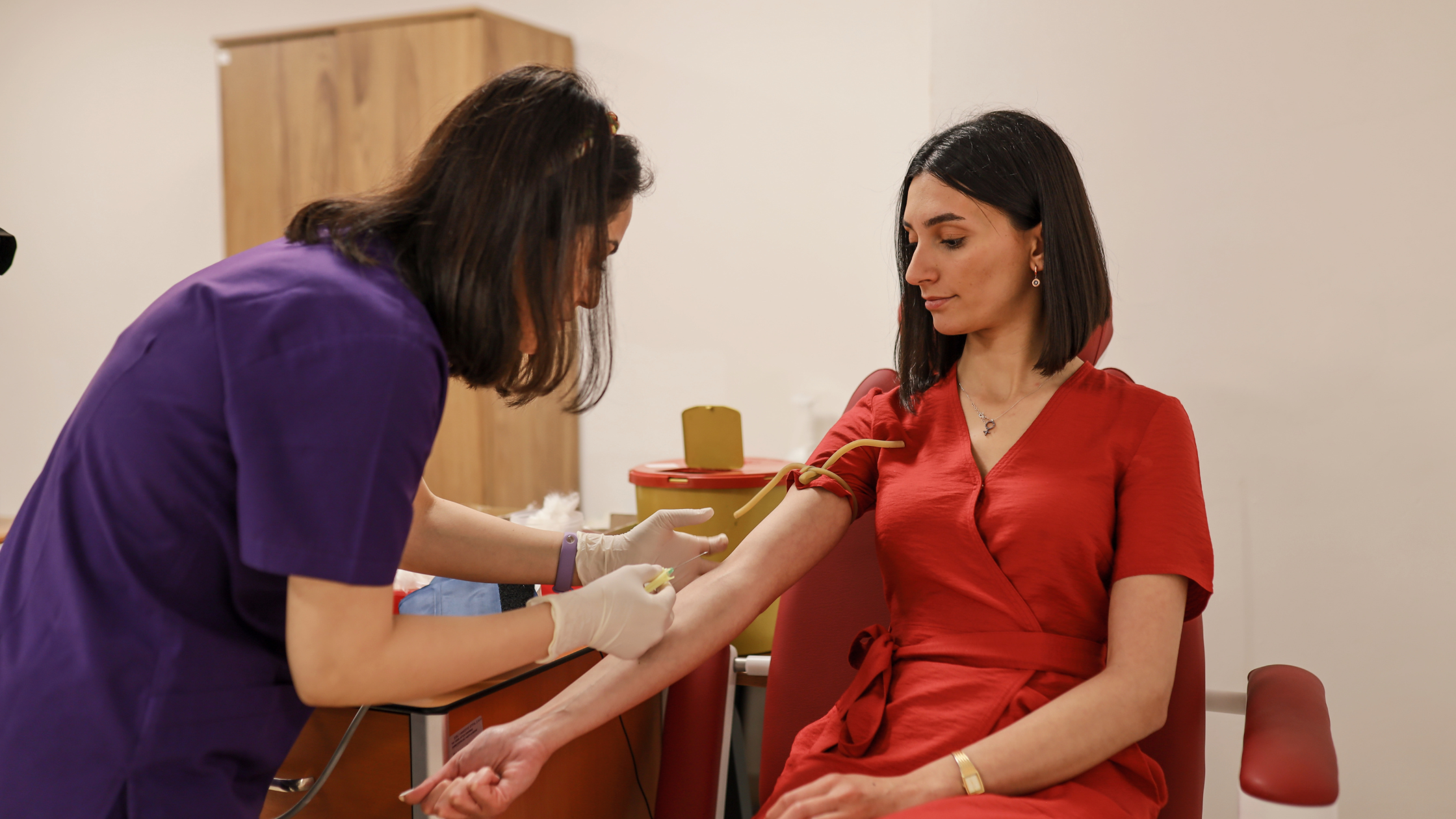HIV/AIDS continues to be a global health concern, affecting millions of lives worldwide. To effectively combat the spread of the virus and provide timely treatment, early detection is crucial. One of the advanced diagnostic tools aiding in this effort is the HIV RNA PCR test. This article aims to shed light on the significance of this test, emphasizing its role in identifying the virus at an early stage, explaining the procedure, and discussing its accuracy and benefits.
Understanding HIV RNA PCR Test:
The HIV RNA Polymerase Chain Reaction (PCR) test is a vital diagnostic tool that detects the presence of the virus in the blood by amplifying and measuring the genetic material called RNA. Unlike antibody tests, which rely on detecting HIV antibodies produced by the immune system, the PCR test can detect the virus directly during the early stages of infection when antibodies may not have developed yet.
Procedure:
The HIV RNA PCR test requires a sample of blood from the individual being tested. The blood sample is then sent to a laboratory for analysis. In the laboratory, scientists extract the genetic material from the sample and use the PCR technique to amplify HIV RNA if present. Specialized equipment is used to measure the level of amplification and determine the presence and quantity of the virus in the bloodstream.
Accuracy and Reliability:
One of the major advantages of the HIV RNA PCR test is its high accuracy and reliability, especially during the early stages of infection. The test has a low rate of false negatives, meaning it rarely misses an HIV-positive individual. However, false-positive results can occur in certain instances, such as laboratory contamination or in individuals with conditions that can lead to cross-reactions. Therefore, experienced professionals must interpret the results accurately to prevent unnecessary distress or treatment interventions.
Benefits:
1. Early Detection: The HIV RNA PCR test plays a pivotal role in the early detection of HIV infection. By detecting the virus sooner, individuals can seek medical care, initiate antiretroviral therapy (ART) earlier, and minimize the risk of transmitting the virus to others.
2. Prevention of Vertical Transmission: Pregnant women with HIV can transmit the virus to their unborn child during pregnancy, labor, delivery, or breastfeeding. The timely utilization of HIV RNA PCR testing in pregnant women enables healthcare providers to start interventions as necessary to reduce the risk of vertical transmission, such as administering antiretroviral medication or recommending alternative feeding methods.
3. Monitoring Treatment Response: The HIV RNA PCR test is also essential for monitoring the effectiveness of antiretroviral therapy. By regularly employing this test, healthcare professionals can measure the amount of virus in the bloodstream, evaluate the treatment's success, and make necessary adjustments to optimize patient outcomes.
4. Partner Notification: Early diagnosis through the HIV RNA PCR test allows infected individuals to inform their partners, enabling prompt testing, counseling, and initiating preventive measures. By identifying and treating potential infections early, the spread of HIV can be curtailed.
Understanding the HIV RNA PCR Test: FAQs
1. What is an HIV RNA PCR test?
The HIV RNA PCR test is a molecular diagnostic tool used to detect and quantify the amount of HIV genetic material (RNA) in a person's blood. This test is performed to determine the presence of HIV in the early stages of infection or to monitor the effectiveness of antiretroviral therapy (ART) for individuals living with HIV.
2. How does the HIV RNA PCR test work?
The test works by amplifying the HIV genetic material through the PCR technique. A small blood sample is taken from the individual, and the viral RNA is extracted and converted into DNA. The DNA is then amplified through multiple cycles, allowing for a more accurate and sensitive detection of HIV.
3. When should someone get an HIV RNA PCR test?
The HIV RNA PCR test is most commonly used during the early stages of infection, often within 9-11 days after potential exposure, to detect acute HIV infection when antibody tests may not yet be reliable. It is also utilized to determine the viral load (amount of HIV in the blood) for individuals already diagnosed with HIV, providing information on the progression of the disease and monitoring the effectiveness of ART.
4. How accurate is the HIV RNA PCR test?
With its high sensitivity, the HIV RNA PCR test is considered extremely accurate in detecting HIV infection. However, as with any medical test, false negatives and false positives are possible. False negatives may occur if the test is conducted too soon after exposure or during the window period when the viral load is very low. False positives are rare but may occur due to laboratory errors or contamination.
5. What are the limitations of the HIV RNA PCR test?
Although the HIV RNA PCR test is a powerful tool, it has limitations. The test is expensive and requires specialized laboratory facilities. Additionally, the test cannot distinguish between HIV-1 and HIV-2, the two main types of the virus. Confirmatory testing using antibody tests is recommended if a positive result is obtained.
6. Are there any risks associated with the HIV RNA PCR test?
The test itself involves a simple blood draw, which poses minimal risk. However, individuals may experience minor discomfort or bruising at the site of the blood draw. Rare complications such as infection or excessive bleeding are possible but extremely uncommon.
Conclusion:
The HIV RNA PCR test is a powerful diagnostic tool that aids in the early detection of HIV infection, providing numerous benefits to individuals, healthcare providers, and society as a whole. Through accurate and early diagnosis, it enables timely interventions, reduces the risk of transmission, and improves treatment outcomes for affected individuals. As technology advances, the HIV RNA PCR test will continue to play a vital role in the global efforts to eradicate HIV/AIDS.






